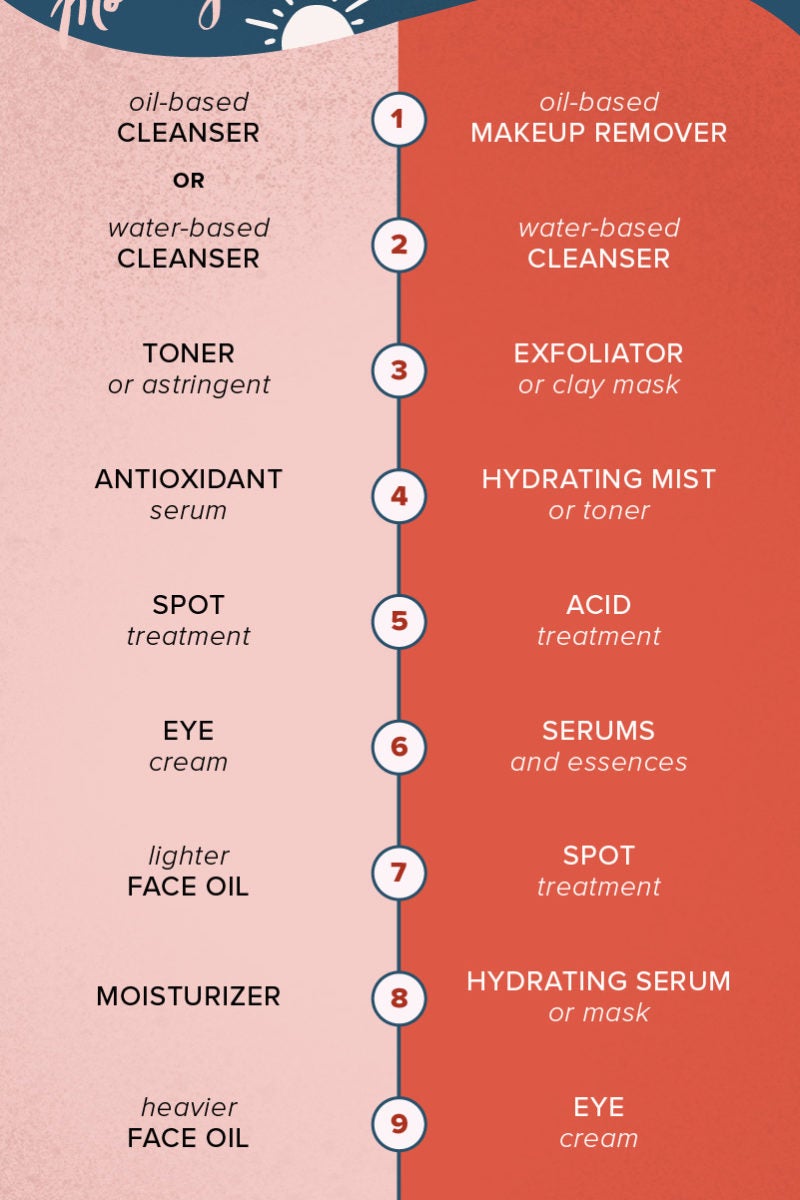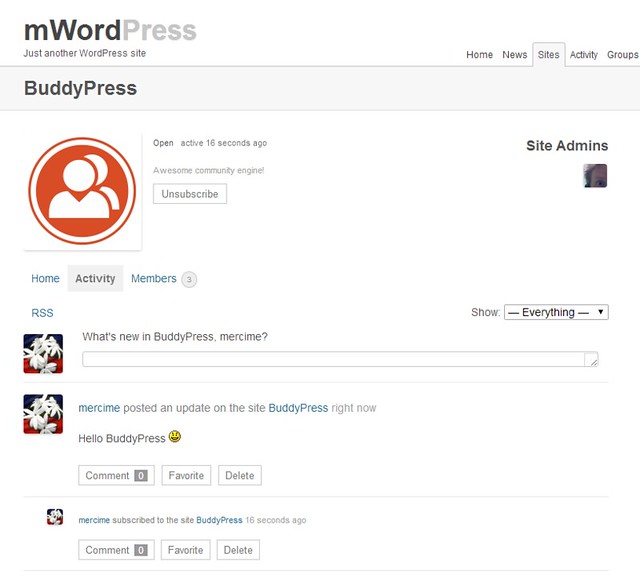In that case, take your multivitamin with whichever meal contains the most fats and oils. Taking your multivitamin with a meal may also reduce stomach upset or nausea that can occur with these supplements. Most people do not need to take vitamin supplements and can get all the vitamins and minerals they need by eating a healthy, balanced diet. Vitamins and minerals, such as iron, calcium and vitamin C, are essential nutrients that your body needs in small amounts to work properly.
Some nutrients and food components reduce the absorption of other nutrients. If you have, or are at risk for nutrient deficiencies, take the relevant supplements separately and between meals. This is not usually needed for healthy individuals with a varied diet, since recommended intakes account for these nutrient interactions. However, avoid taking multivitamins with other vitamin or mineral supplements so they don't compete for absorption.
The best way to stay healthy during your pregnancy is to eat right and maintain a healthy weight gain. Yes prenatal vitamins are an important part of your pregnancy nutrition, but they are never a subtitute for a healty well balanced diet. If you forget your vitamins once in a while do not panic...and do not "double up" because they may make you feel sick or increase constipation. I usually recommend that my patients put any "daily medicine" in a place they go every day...such as next to their toothbrushes, hairdryers, car keys, etc. Sometimes you can even set a daily reminder or alarm on your cell phone so you can remember to take your vitamins. The time of day you take supplements is less important than whether or not you take them with food.
Take water-soluble vitamins, like vitamin C and folate on an empty stomach, and fat-soluble vitamins, like vitamins A, E, D, and K with food containing fat to ensure proper absorption. You should also take multivitamins or prenatal vitamins with a snack or meal. Never take more than the recommended dose of multivitamins and minerals. An overdose of vitamins A, D, E, or K can cause serious or life-threatening side effects if taken in large doses. Ask a doctor or pharmacist if it is safe for you to use multivitamins and minerals if you have other medical conditions or allergies. If you drink coffee or tea, the morning might not be the best time to take your vitamins.
The tannins and caffeine can interfere with the absorption of many vitamins and minerals, especially iron. Caffeine also increases urination, which can decrease the concentration of water-soluble vitamins (B-complex and C). So, wait an hour after your morning brew to take supplements.
Caffeine-free herbal tea, on the other hand, contains fewer tannins than regular tea. This beverage may actually increase the absorption of certain minerals such as iron. Centrum MultiGummies are multivitamins containing several of the essential vitamins and minerals your body needs. Therefore, these products should not be taken with any other multivitamin products. We recommend always checking with your healthcare professional about the best regimen to follow for your dietary supplement needs.
Iron is best absorbed when taken on an empty stomach, 1 hour before or 2 hours after eating. If iron upsets your stomach, have it with meals, preferably with a small amount of meat and a food or drink rich in vitamin C to help boost the amount of iron your body absorbs. Some foods impair your ability to absorb ferrous salts; these include coffee, chocolate, eggs, dairy products, spinach and whole-grain breads and cereals and supplements with zinc or manganese. If you're planning a surgery, be aware that some dietary supplements can interact in a harmful way with medications you need to take before, after, or during that surgery. The timing of when you take your supplements can significantly affect the way in which your body can absorb and utilize the nutrients. Fat-soluble vitamins and omega-3s (TrySFH Super Omega-3 Fish Oil) are better absorbed when taken with a meal that contains fat.
Probiotics are best taken on an empty stomach so that there's nothing to interfere with the good bacteria from getting to work. Vitamin B12 is also better absorbed on an empty stomach because an acidic environment increases absorption. Good sources of fat at breakfast include eggs and avocado, according to the wellness experts at My Body+Soul. It is also important to drink a lot of water when you take a multivitamin to help dissolve it. This would obviously not be a good idea at bedtime, or you'll be up several times during the night. If you're someone who strives to eat a healthy diet, then you might know a thing or two about eating foods that contain important vitamins and minerals.
Vitamins and minerals are essential for good health and eating a balanced diet will provide the vitamins and minerals your body needs. However, for many, eating healthy can be a challenge and taking a multivitamin multimineral supplement is a good strategy to stay on track. Most vitamins and minerals are absorbed most effectively paired with a balanced meal. If you are taking a fat soluble vitamin such as Vitamin D, make sure you are eating some fat. This effectively increases your body's utilization of the supplement.
When should I take Centrum morning or night This holds true for Vitamins A, E, K and Coenzyme Q10 too. Calcium — The recommended intake is 1,200 mg daily for women over the age of 50 and men over the age of 70. A meta-analysis found that calcium supplementation increased the risk of cardiovascular disease.
Mayo Clinic experts support meeting — but not exceeding — your daily calcium requirements, primarily through food, as there was no evidence of increased risk with dietary sources of calcium. The researchers concluded that multivitamins don't reduce the risk for heart disease, cancer, cognitive decline (such as memory loss and slowed-down thinking) or an early death. They also noted that in prior studies, vitamin E and beta-carotene supplements appear to be harmful, especially at high doses.
Consequently, combining dietary supplements and medications could have dangerous and even life-threatening effects. For example, drugs for HIV/AIDS, heart disease, depression, treatments for organ transplants, and birth control pills are less effective when taken with St. John's Wort, an herbal supplement. Depending on the medication involved, the results can be serious.
Preventive Services Task Force, do not recommend multivitamins either. If you're a healthy guy and have no major dietary restrictions, you don't need a multivitamin. A pill containing 20 vitamins and minerals is never going to replicate the complex mixture of healthful compounds in whole foods. Many people take a multivitamin end up using them to justify less healthy eating habits.
Most people don't realize that vitamin supplements can cause sleepless nights. Since vitamins are essential nutrients your body needs to function, it sounds counterintuitive. However, vitamins A, B5, B6, B12, C, D, and K can keep you awake at night.
They can also cause side effects like nausea, diarrhea, and muscle cramps. The report was reviewed by clinicians, researchers, experts, and the public. Every time you visit a health care professional's office, bring a list of all the dietary supplements and medications you are currently taking. Include the dosages and how many times a day you take them. Some people find it easiest to throw all their dietary supplements and medications in a bag to bring to the medical visit. I'm not saying guys shouldn't also pay attention to their diet (I advocate a plant-heavy Mediterranean approach), but it's not likely that you're eating all the nutrients you need all the time.
Data suggests that 90 percent of men fall short in one or more of the 16 essential vitamins and minerals. The researchers concluded that multivitamins don't reduce the risk for heart disease, cancer, cognitive decline (such as memory loss and slowed-down thinking) or an early death. Most multivitamins should be taken once or twice per day. Make sure to read the label and follow the recommended dosage instructions. Multivitamins are available in pharmacies, large discount stores, and supermarkets, as well as online.
Multivitamins are supplements that contain different vitamins and minerals. This medication is best taken on an empty stomach 1 hour before or 2 hours after meals. Take with a full glass of water unless your doctor directs you otherwise. If stomach upset occurs, you may take this medication with food.
Avoid taking antacids, dairy products, tea, or coffee within 2 hours before or after this medication because they may decrease its effectiveness. Do not lie down for at least 10 minutes after taking the tablets or capsules. Consult your doctor or pharmacist for details for your particular brand.
The B vitamins and vitamin C in multivitamin supplements are water-soluble, so your system uses what it needs and then your kidneys excrete any extra out through your urine. When you sip coffee around the same time as taking your multivitamin, the caffeine increases blood flow throughout your body, even in your kidneys. As a result, your kidneys work faster to filter through waste, which is the diuretic effect of caffeine. Some of the vitamins left floating around from your multivitamin can get pulled into urine without being absorbed.
While this isn't dangerous, it defeats the purpose of taking a multivitamin supplement. Other drugs may interact with multivitamins with iron, including prescription and over-the-counter medicines, vitamins, and herbal products. Tell each of your health care providers about all medicines you use now and any medicine you start or stop using. I take a multivitamin every day—and I'd recommend that the 50 percent of Americans who don't take one start. While it's true that the data on multivitamins in the short-term isn't beneficial for otherwise healthy men, the 20-year data shows a significant benefit for heart disease and cancer risk.
A balanced diet is important for our body to function at its best every day. Centrum Advance contains essential vitamins to help fill nutritional gaps if dietary intake is inadequate , supporting multiple health benefits. They are designed for both men and women in the family and are suitable for sharing.
Many multivitamin products also contain minerals such as calcium, iron, magnesium, potassium, and zinc. Minerals can cause side effects such as tooth staining, increased urination, stomach bleeding, uneven heart rate, confusion, and muscle weakness or limp feeling. Read the label of any multivitamin product you take to make sure you are aware of what it contains.
If you take a multivitamin, it's probably because you want to do everything you can to protect your health. But there is still limited evidence that a daily cocktail of essential vitamins and minerals actually delivers what you expect. Most studies find no benefit from multivitamins in protecting the brain or heart. The studies also didn't show any harm from taking multivitamins. The reason to take half a multivitamin in the morning and half at night is that you urinate out soluble vitamins in hours; two doses help keep blood levels steady.
Getting adequate levels of vitamins and iron are essential for a healthy immune system. Your immune system is your body's natural defence against illness. If you are unable to meet your needs through food alone, supplementing with multivitamins in conjunction with Active Iron is an effective means of supporting your immune system. "Because vegetarians are not consuming animal products, the nutrients they tend to need are vitamin B12, zinc, iron and omega-3 fatty acids like DHA," says greene. "Look for supplements that contain these vitamins plus DHA from algae, a vegetarian source, rather than from fish."
In addition, many pregnant women don't get the institute of medicine's recommendation for 600 IUs of vitamin D per day. But most prenatal vitamin formulations contain 400 IU, and this should be adequate when combined with a healthy diet, Dayal says. The March of Dimes also recommends that pregnant women get at least 200 milligrams of DHA daily.
Found in fish and some plant-based, vegetarian sources, DHA is an omega-3 fatty acid that's essential to fetal brain and eye development, Dayal says. Many prenatals contain DHA, but you also can take fish oil capsules; they're mercury-free. Unlike medicines and food, the FDA does not have to approve or even inspect vitamins and minerals sold in the United States. Look for brands that are labeled with NSF International, US Pharmacopeia, Underwriters Laboratory, or Consumer Lab seal.
These are 3rd party agencies that test to confirm that the supplements actually contain what is on the label. Be wary of vitamins and supplements that come from outside of the US. These may contain toxic substances or more filler than actual vitamins. Some of the more reputable bariatric specific brands include Barimelts, Celebrate Vitamins and Bariatric Fusion. When to take your vitamins really depends on the kind of vitamin. Multivitamins are generally designed to be best taken first thing in the morning—perfect for pairing with a pre-breakfast probiotic.
Fat-soluble vitamins such as A, D, E, and K and some minerals, including iron and magnesium, are best taken with food. Dietary supplements are vitamins, minerals, herbs, and other substances that "supplement" the vitamins and minerals you get from foods. They are sold at pharmacies, grocery stores, vitamin stores, and health food stores and on the Internet. If you are like me, you do your best to eat right, exercise and to take your vitamins.
You understand how important it is to take excellent care of your mind, body, and soul. You buy healthy food, you stay as active as possible and you buy high-quality vitamins. Vitamin D — In support of bone health and prevention of falls, 600 to 800 IU daily from diet and supplements combined is recommended for older adults.
Some doctors and organizations believe that higher doses may be appropriate. Many people take supplements as an "insurance policy" against inadequate nutrition. However, in developed countries, deficiencies in most vitamins and minerals are uncommon, unless there is a predisposing condition.

























